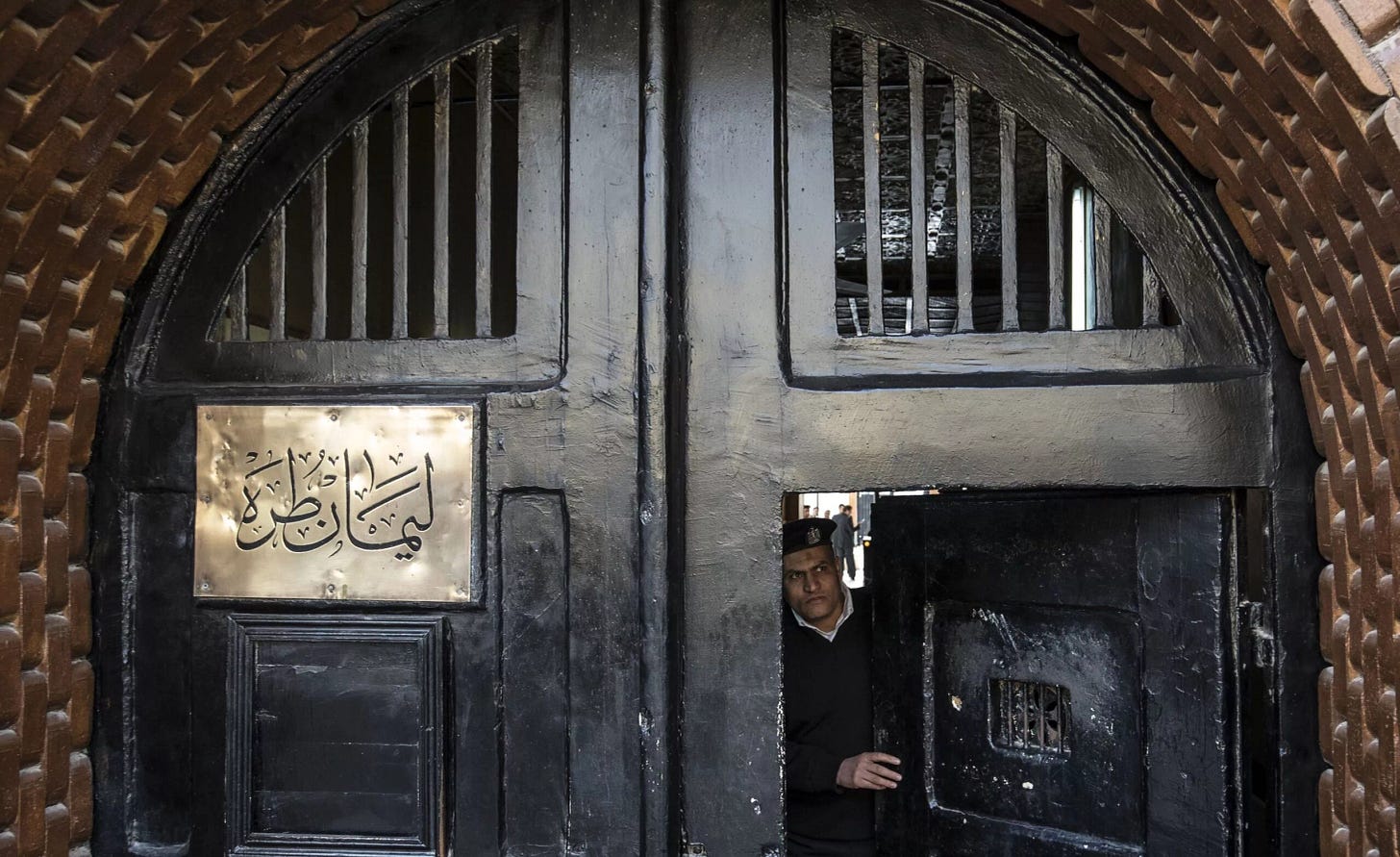On July 27, violent clashes erupted between residents of Belqas, a town in Egypt’s Dakahlia Governorate, and the police, following the death of 21-year-old Ayman Sabry while in police custody. The protests took place outside the Belqas courthouse, where locals gathered to denounce what they described as a case of death by torture.
Ayman had been arrested on July 19—just ten days before his death—on charges of drug use and possession of a bladed weapon. His family reported visible signs of torture on his body, and his lawyer confirmed he had been tortured by officers at the station.
For many Egyptians, this was neither a new event nor an unfamiliar pattern. Similar incidents have recurred over the years: citizens dying under torture inside detention centers or at the hands of Egypt’s National Security Agency, regardless of whether they were arrested on political or criminal charges. In Egypt, torture is not an aberration or a momentary lapse—it is a systemic practice, rooted in a deeply entrenched security mindset.
This article seeks to explore the historical roots of that mindset and asks whether such recurring brutality—torture that ends in death—might once again ignite public outrage, as it did in January 2011.
Torture as a Historical Doctrine
Since the founding of “modern Egypt” under Muhammad Ali in the early 19th century—particularly during the formation of the Egyptian army in the 1820s—the state’s treatment of its citizens has been marked by dehumanization. Egyptians were seen as expendable bodies, tools in service of the nascent state’s interests.
Within this worldview, Egyptians became instruments of state power, conscripted into the military or the agricultural labor force under quasi-feudal conditions. The state showed little regard for their lives. Those who fled conscription were imprisoned, mutilated, or killed as punishment.
These practices, which verged on symbolic and physical annihilation, laid the groundwork for a political philosophy that viewed the Egyptian populace as property of the state—resources to be used, disciplined, or destroyed in the name of authority.
Even after the 1952 revolution that abolished monarchical rule and established a republic, this mentality endured. While Gamal Abdel Nasser’s regime introduced sweeping reforms—promising equality in education, healthcare, and employment under the banners of Arab socialism and nationalism—the state’s security apparatus remained unshaken in its brutal posture toward ordinary citizens, particularly those without power or privilege.
The post-revolution republic expanded its institutions, especially its security branches, building a sprawling network of agencies and forces capable of dominating every aspect of public life. As this apparatus grew, so too did the scope and sophistication of torture. Eventually, a visit to a police station in Egypt became synonymous with abuse. A common question asked of any detainee: “Were you tortured?”
Under President Abdel Fattah el-Sisi, the situation has only worsened. Security forces have grown more brazen, wielding unchecked power. Torture is now routine in detention centers, according to countless reports by human rights groups and journalists. These accounts include severe abuse and deaths inside police stations and National Security headquarters.
Such cases are no longer perceived as isolated incidents or emotional outbursts by rogue officers. Rather, they are systematic, institutional, and deeply embedded in the fabric of the Egyptian state.
Can Torture Spark Another Revolution?
The January 2011 uprising was ignited, in large part, by police brutality and the rising tide of torture against civilians. The deaths of Khaled Said and Sayed Bilal in the months leading up to the revolution served as catalysts. The choice of January 25—Egypt's Police Day as the launch date for the protests was a direct challenge to the Ministry of Interior.
What began as a call to end torture quickly evolved into a demand for the fall of the Mubarak regime, which was realized on February 11, 2011.
This prompts a pressing question: could the continued killing of citizens under torture today lead to another mass uprising? The grievances that drove people to the streets in 2011—torture, poverty, repression, and political despair—remain, and have arguably intensified. Still, the likelihood of a new revolution appears slim.
One major reason is that the social and political context has changed dramatically since 2011. In the decade preceding the revolution, Egypt saw a burgeoning of political, rights-based, and labor movements that laid the groundwork for collective action. Civil society was more organized, more visible, and more capable of mobilizing around a common cause.
Today, such infrastructure has all but vanished. There are no active unions, rights organizations, or political entities with the capacity to rally the public around a unified demand—even one as fundamental as ending torture.
Moreover, while Mubarak’s regime, despite its repression, allowed limited space for cultural, political, and civic expression—including human rights organizations that monitored police abuse—the current regime under Sisi has adopted a far more totalitarian posture.
Over the past twelve years, the state has effectively eliminated all public and independent spaces: no politics, no independent arts, no civil society. The only narrative allowed is the state’s narrative.
This climate of fear and repression has been accompanied by widespread violence, including mass arrests, enforced disappearances, and the killing of thousands. Within this environment, the public’s reaction to deaths under torture has become increasingly subdued confined to momentary outrage, rather than organized resistance.
When such deaths occur, they may prompt small, localized protests, like the one recently seen in Belqas. But these demonstrations are swiftly contained through either violent suppression or political maneuvering.
Without an organizing body—political or civil—that can channel collective anger into sustained action, calls to end torture remain diffuse. The current regime continues to operate with a mindset that treats Egyptian bodies as expendable tools. Its very legitimacy is built on violence, more than any prior government. Today, the machinery of repression is not just a symptom of power—it is its core mechanism.
And so, Egyptians continue to suffer, one case at a time, under a regime whose authoritarianism has reached unprecedented depths.



